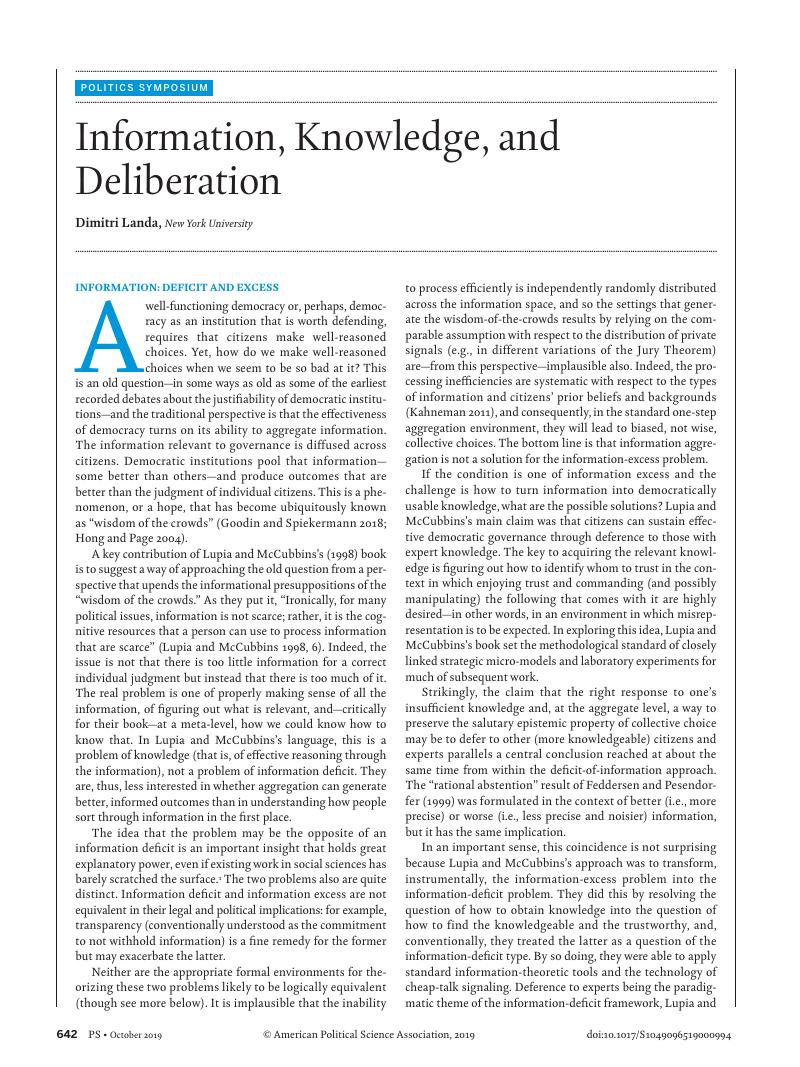Crossref Citations
This article has been cited by the following publications. This list is generated based on data provided by Crossref.
Pivato, Marcus
and
Ding, Huihui
2019.
Deliberation and Epistemic Democracy.
SSRN Electronic Journal ,
Landa, Dimitri
and
Pevnick, Ryan
2021.
Is Random Selection a Cure for the Ills of Electoral Representation?*.
Journal of Political Philosophy,
Vol. 29,
Issue. 1,
p.
46.
Pottle, Justin
2025.
Epistemic Injustice and the Electoral Connection.
American Journal of Political Science,
Vol. 69,
Issue. 1,
p.
118.



